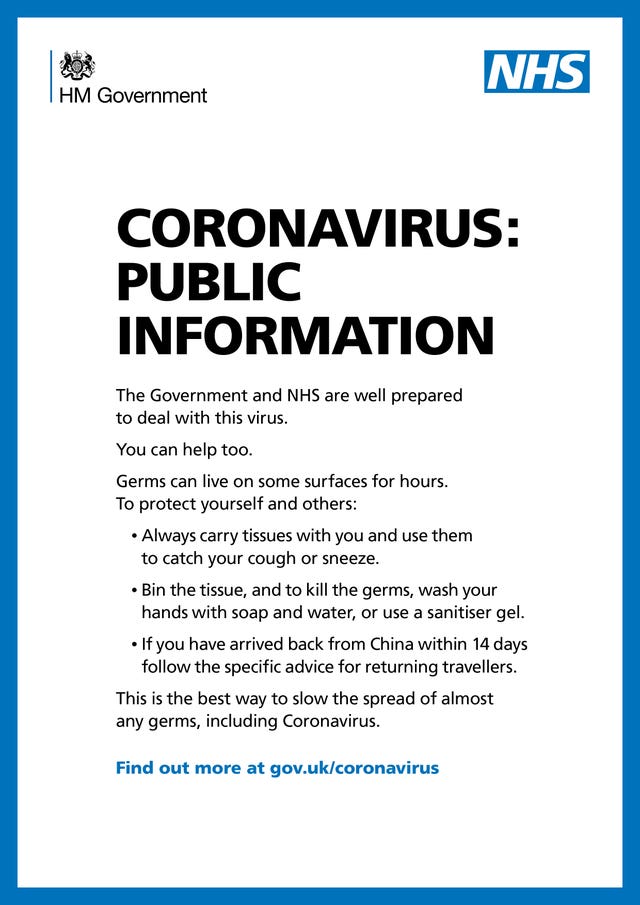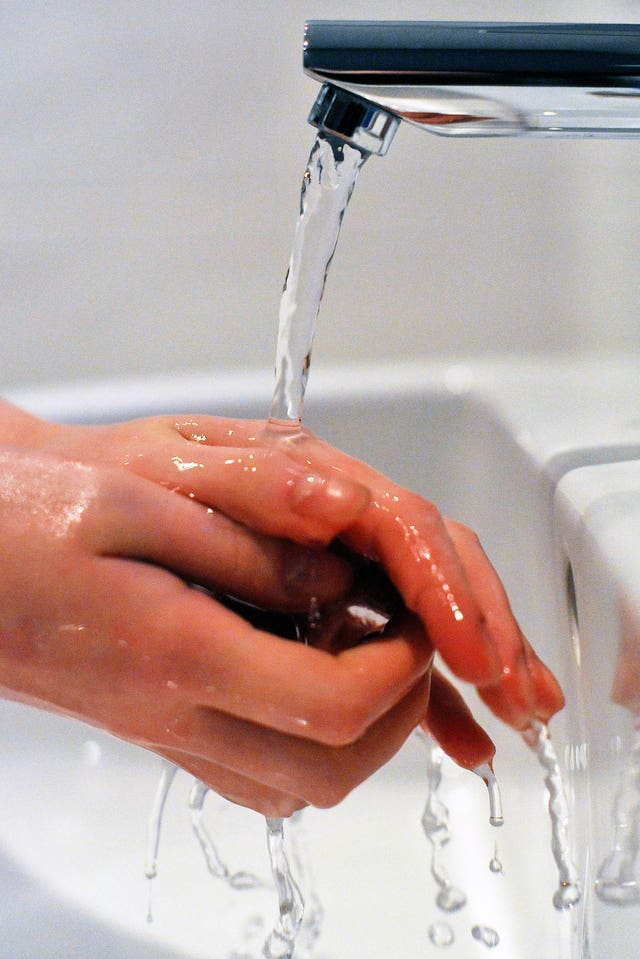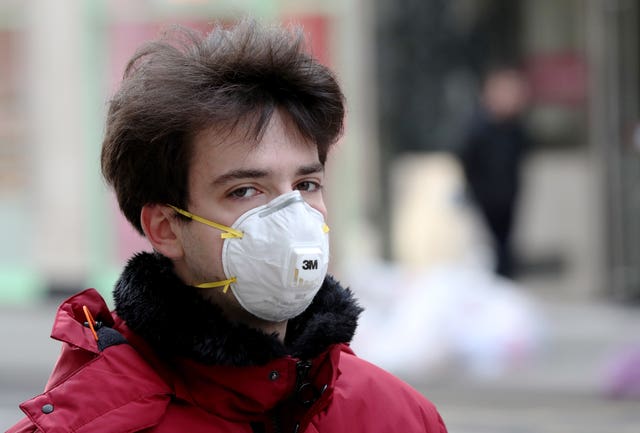
AVOIDING hand-shakes is one effective way of reducing the risk of catching coronavirus, experts say.
Thorough hand-washing, maintaining distance from others and avoiding contact like hand-shakes can be a good way to stem the spread of the virus.
As fears intensify over the European spread of Covid-19, health professionals have said everyday precautions like carrying hand sanitiser are the best tools to protect against contracting the illness.
Covering your mouth and nose with a tissue or sleeve when you cough or sneeze, rather than your hands, and binning used tissues immediately is also helpful, according to NHS guidance.
 NHS guidance (NHS/PA)
NHS guidance (NHS/PA)
– How long can the virus survive on an object?
Studies on related viruses like Sars have shown that the germs can survive anything from a number of hours to several days, depending on the surface and its temperature and humidity, said Leeds University virologist Stephen Griffin.
He told BBC Breakfast it was related to the amount of virus on an object, and as you reduce the amount its longevity gets “severely shortened”.
“By and large these are very fragile viruses, easily disinfected with alcohols and bleach,” he said.
 Hand-washing is the single most important act (Nick Ansell/PA)
Hand-washing is the single most important act (Nick Ansell/PA)
– What is the best way to avoid picking it up?
Dr Griffin and GP Dr Rosemary Leonard agreed that good hand hygiene is the most effective deterrent.
Dr Leonard said a 20-second routine, tackling areas between fingers, under nails, and all surfaces on the hands and wrists, is the “most important thing you can do in terms of stopping the transmission of this virus”.
“The previous Sars outbreak was stopped by good hand-washing,” she added.
Avoid touching your mouth with your hands, maintain “social distance” from other people, and stop shaking hands, the experts said.
– Does a strong constitution make me safe and can you catch the virus twice?
Typically, after someone catches a viral illness, the immune system kicks in and develops antibodies which prevent a patient catching the condition again.
“In general, once you’ve had it as long as your immune system is working properly … you should not get it again”, said Dr Leonard.
She said there was not enough information surrounding reports of a woman in Japan who is said to have caught the virus twice to be confident that was the case.
Healthy people who have generally strong defences against colds and other illnesses are not better protected against Covid-19, Dr Griffin said, adding: “Having other illnesses has no relation to this virus in particular whatsoever.”
Health professionals have advised people to get flu vaccines if they have not already done so, as you are more vulnerable to a second illness if your body is already fighting one infection.
 A pedestrian wears a face mask while walking in central London (Jonathan Brady/PA)
A pedestrian wears a face mask while walking in central London (Jonathan Brady/PA)
– Are masks useful?
A mask will prevent some viral spread when it is new but once it becomes damp “they hardly stop anything”, Dr Leonard said.
But a mask can help by stopping someone touching their face and mouth, she added.
NHS staff with facial hair at Southampton General Hospital have been urged to shave to help limit the spread of the virus, the Sun reported.
According to the Health and Safety Executive, stubble and beards “make it impossible to get a good seal of the mask to the face”.
Guidance on its website says: “Many masks rely on a good seal against the face so that, when you breathe air in, it is drawn into the filter material where the air is cleaned. If there are any gaps around the edges of the mask, ‘dirty’ air will pass through these gaps and into your lungs.
“If you are clean-shaven when wearing tight-fitting masks (i.e. those which rely on a good seal to the face), this will help prevent leakage of contaminated air around the edges of the mask and into your lungs.”


Why are you making commenting on The Herald only available to subscribers?
It should have been a safe space for informed debate, somewhere for readers to discuss issues around the biggest stories of the day, but all too often the below the line comments on most websites have become bogged down by off-topic discussions and abuse.
heraldscotland.com is tackling this problem by allowing only subscribers to comment.
We are doing this to improve the experience for our loyal readers and we believe it will reduce the ability of trolls and troublemakers, who occasionally find their way onto our site, to abuse our journalists and readers. We also hope it will help the comments section fulfil its promise as a part of Scotland's conversation with itself.
We are lucky at The Herald. We are read by an informed, educated readership who can add their knowledge and insights to our stories.
That is invaluable.
We are making the subscriber-only change to support our valued readers, who tell us they don't want the site cluttered up with irrelevant comments, untruths and abuse.
In the past, the journalist’s job was to collect and distribute information to the audience. Technology means that readers can shape a discussion. We look forward to hearing from you on heraldscotland.com
Comments & Moderation
Readers’ comments: You are personally liable for the content of any comments you upload to this website, so please act responsibly. We do not pre-moderate or monitor readers’ comments appearing on our websites, but we do post-moderate in response to complaints we receive or otherwise when a potential problem comes to our attention. You can make a complaint by using the ‘report this post’ link . We may then apply our discretion under the user terms to amend or delete comments.
Post moderation is undertaken full-time 9am-6pm on weekdays, and on a part-time basis outwith those hours.
Read the rules hereComments are closed on this article